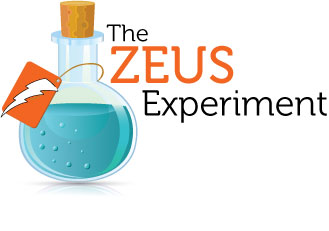This is a guest post by Zeus
This week I quadrupled sign-ups for my mailing list, and re-taught myself some valuable lessons:
- Trust yourself.
- Be original in voice.
- Put quality first.
- Tap into your existing community.
- Write what you know.
Here’s what happened:
My guest post, “Welcome to the Nuthouse: How Private Financial Fiat Creates a Public Farce” got over 20,000 reads on two sites and was reprinted on about 40 others.
It was not written in eighth grade vocabulary. It did not follow the format of “Seven steps to ____.” It was not hawking an information product that would transform your business.
I broke all the rules that most marketers tell you to use. But it was me, and it was very effective at reaching my audience, creating follow-up interest, and getting sign-ups. I helped people make sense of the world and their lives by boiling down and explaining contradictions in our economy in an entertaining and informative way.
Original Branding
My website, Citizen Zeus, is about learning to transform your society and your own learning.
It provides a forum where people can become informed about the future of innovative learning in important social spheres (economy, community, education, and spirituality) as well as buy products and services that equip them to accelerate and enhance their own personal learning.
When readers resonate with my writing, they get a strong sense that I will continue to inspire, inform, and entertain in a similar way with my products and services.
In short, my voice and business will succeed by people tasting what I offer (in my voice) and responding.
It’s truth in advertising. My writing style (and yours) needs to emerge from personal authenticity and a strong point of view.
Bland and generic writing doesn’t work for my audience or for me. I’m pretty sure it won’t work for yours either. Trying to follow a formulaic process also won’t work.
Virtual communities need something useful and different to engage with — not another “me-too” voice in a sea of copycats. When I provide that “useful and different” voice, it’s logical that some people will resonate with that and sign up for my list.
Being Heard
“I keep trying to find ways to talk about what I do, but no one is listening.”
“Write because you have something valuable to say. Don’t write to be heard.”
Editing, refining, and applying marketing formulas to something not worth hearing will get you nowhere.
If a pretty package hides an inferior product, people will soon get wise. A lot of these slick marketing articles are like fake gold plating on plastic, pretty to the eye but worthless upon closer inspection.
I’ll say it outright: You’ve been lied to by most marketing people. The correct order is not, “Once I get people to hear me, then I can sell something.” Rather it’s, “Once I have something of value to give, and demonstrate its value, then people have a reason to listen to me, develop a relationship, and eventually buy from me.”
There’s a place for editing, clarifying your language, simplifying your format, and even marketing your work but it comes after creating a foundation of substance and value. That foundation is meant to enhance the clarity, understanding, and power of your original voice not cover it over with hype.
Real life examples: Write because you have something valuable to say
Like good writing, a successful business proceeds from your experience, your passion, your interests, your developed skills and talents meeting the desires and needs of a particular group of people.
Not from pretending to be someone you think they want to see.
Many of you may be thinking unconsciously, “But what if I put the ‘real’ me out there and nobody wants it?”
Well, either you learn why others don’t want it, and you improve your self-understanding and your delivery, or you move on, grateful you aren’t wasting your time on an endeavor that is a poor fit for you. Don’t run away from yourself because you think people need something “more.”
- Believe in your capabilities and value.
- Commit to knowing yourself as deeply and clearly as you can.
- Experiment in a very open way with being yourself in the world.
- Converse, interact with others, brainstorm, write your thoughts down. Get “you” out there as a person, not a product.
- Get feedback and share product ideas with friends related to your interest.
- Notice themes and insights arising about what your passions and expertise — and apply them to your business.
- Accept rejection from competitive projects, clients, or institutions as either a poor fit or an indication that you need to improve.
As part of my business I successfully help high school students get into college using some version of the following process, so I encourage you to try it. I’ve helped three different types of clients get into top-tier California universities.
One had Asperger’s Syndrome, another was the son of a hardware store owner with average grades, and the third was a smart but somewhat unfocused lad. What was the secret? Starting with them, and not the questions and expectations of the colleges.
- I had them pick up on the main themes in the college entrance application questions.
- I said “Write stream-of-consciousness whatever comes to your mind” on these themes. Don’t censor or worry about grammar, composition, or relevance. Just write.
- I took that writing and circled intriguing examples and themes.
- I interviewed them to develop these themes by probing into and developing actual examples: What did they learn from these intriguing life episodes? What effects did these episodes have on their life outlook? What insights did they gain?
- I had them write up their answers.
- I helped them to reconnect answers back to the college application questions.
- I helped them with editing, and developing clear, compelling language.
And it worked! Why? Because college admissions officers get tired of kiss-butt perfect clones trying to sell themselves like they are laundry detergent.
Admissions officers would much rather hear the unique, imperfect story of a learning disabled kid who became interested in being a chef after dishing food in the high school cafeteria, or a student, mentored by a Samoan weight instructor, who got interested in exercise physiology.
I was able to help my clients show that they were:
- Original
- True to themselves
- Intriguing, self-aware, and diverse (therefore an asset to the college)
- Interested in contributing and learning.
- Serious and thoughtful about what they are going to do in life.
In short, they got heard by speaking from themselves, cutting through the noise, and therefore offering an attractive “product” and making the “sale” to a university.
No one needs yet another “golden” boy or girl who is polishing their resumes and selling themselves with the same generic volunteer checkmarks, club activities, and leadership positions.
Those are a dime and dozen, and they come off as phony. They imply wanting to get something from the college, rather than offering something to the college.
You Won’t Connect with Everyone
It’s okay if your real voice doesn’t fit a particular setting. I wrote a guest post called, “Career Judo: Five Moves for Turning a Punch in the Gut into a Kick in the Pants,” for “Everyday Bright.”
The first draft was too long and academic sounding.
The second draft, was much better and closer to the formula that the website’s proprietor, Jen, used, but the tone wasn’t quite right.
Jen was right to refuse it. My voice has an edge to it that doesn’t quite fit with her audience.
The secret wasn’t to sweeten my voice, but to find another guest post opportunity more consistent with mine.
Making accommodations will improve your writing and make it more appealing to an audience.
You’ll always need to polish and accommodate to some extent. However, there are limits you must recognize before you slide into inauthentic or plastic writing.
When accommodations take you out of your own ballpark, it’s time to find another method or outlet more appropriate to who you are.
So what’s your story? Let me know if you’ve tried any of these suggestions and if they’ve been helpful. As a sweetener, if you have the courage to share your ramblings in the comment section, I will do (for free) for the first three commenters what I do with my own clients.
***
A Word From Tea
Zeus points out something crucial in his post: You’ve got to stand out in an authentic way before you can ever hope to connect with your right people.
The truth is, there’s a LOT of noise out there and when we repeat what everyone else says, our voices are doomed to be lost and forgotten. If you keep trying to use someone else’s formula (or blueprint, recipe, etc.) for your writing or marketing, you’ll never be different.
SO STOP THAT.
Knowing who you are and what makes you unique is the first step to building a successful business and creating messages that resonate with your target audience. That means taking a long hard look at yourself and what you do. Taking inventory. Looking for patterns. Playing detective. (Coincidentally, this is part of the process I’ve created for my Find Your Secret Sauce class.)
Once you think you know who you are and what makes you different, look even more closely at the market or industry in you’re in. What’s missing from the conversation that’s already happening? What aren’t people seeing (that you see)? What needs a little fixin?
That’s where you’ll find your sweet spot. That’s where you can find and create real traction. At the intersection of your voice and what’s not being said.








Trackbacks/Pingbacks